Tony Heller does a great job with historical climate research. You can see his original post here. I don't agree with his characterization of NOAA as fraudulent; instead, I think NOAA is engaged in political speech and spin. So I'll show Tony's material with my own commentary.
My conclusion: If you read NOAA's report card carefully, it is technically accurate. Overall, it is completely misleading. It's an advocacy document, pure and simple. The government should not be engaged in such advocacy.
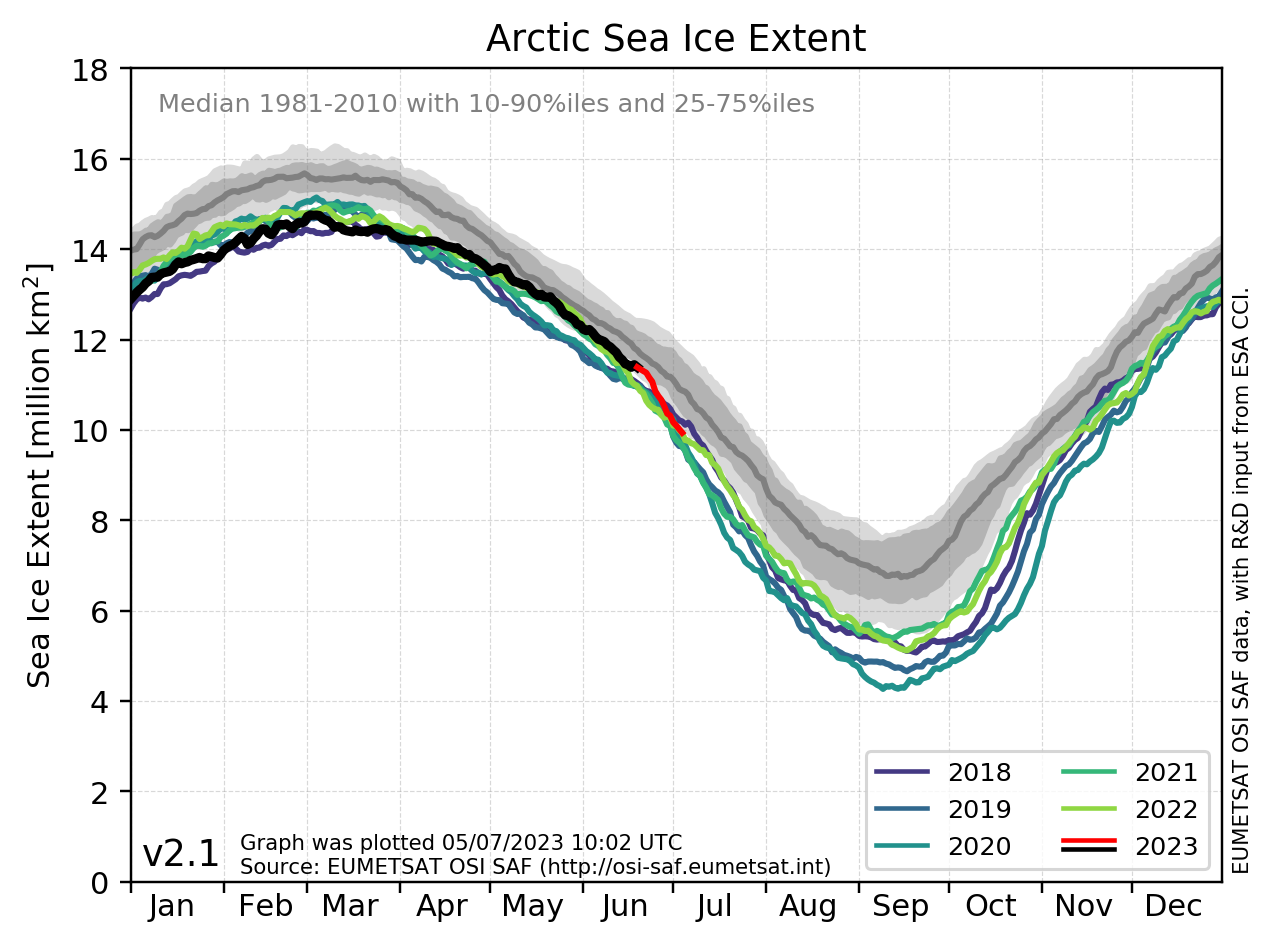
My conclusion: If you read NOAA's report card carefully, it is technically accurate. Overall, it is completely misleading. It's an advocacy document, pure and simple. The government should not be engaged in such advocacy.
NOAA’s chief scientist – Rick Spinrad – was cited in a comment to an article about the Arctic. Spinrad claimed "Warming is happening more than twice as fast in the Arctic as anywhere else in the world. We know this is due to climate change."
The 2015 Arctic Report Card that NOAA issued is available here. The summary is here. The report card says, "The average annual surface air temperature anomaly (+1.3°C relative to the 1981-2010 baseline) over land north of 60°N between October 2014 and September 2015 was the highest in the observational record beginning in 1900. This represents a 2.9°C increase since the beginning of the 20th Century."
Of course, the 1981 start date for the baseline is one of the issues. Another issue is the practical results of the "warming." Tony points out: "The US weather Bureau reported exactly the same thing in 1922. Seals disappearing and fish being forced northwards. However, in 1922 the reported warming was much larger than 2.3 degrees."
Tony also writes, "In 1947, scientists reported 10 degrees Arctic warming, much more than the 2.3 degrees reported by Rick Spinrad." That 2.3 degrees apparently comes from the comment to the Telegraph article. The actual report card claims a 2.9 degree warming, and Spinrad was not a co-author of the report card. Still, Tony makes a good point here.
Tony also makes a good point that "Glaciers were disappearing from Alaska to Norway."
Next, Tony writes, "The sea ice maximum occurred at the end of March, not February 25 as Spinrad claimed, and extent is the highest since at least 2004, not the “lowest on record.”" In this case, it's a question of which data one uses. Tony uses this one:
The other one at the same site looks like this:

Tony argues this one is not as useful for comparisons, but at least it gives some support for NOAA's report card. The main point, though, as Tony mentions later, is that the start date of 1979 skews the data tremendously.
Next, Tony shows that "Satellites show that recent Arctic temperatures peaked about 2010, and have fallen half a degree since then." I think he's right about this, and NOAA doesn't address it.
Again, I think Tony is right about his next point: "Before data tampering, Arctic temperatures were at least as warm in 1940 as they are now. Spinrad cherry-picked 1979 as his start date for many of his metrics, because it was the coldest year on record in the Arctic."
And this one: "Arctic warming was causing major challenges to communities 60 years ago."
Here, I think Tony makes a mistake. The NOAA Report Card is not lying; it is merely misleading, in a propaganda-type exercise. Tony writes, "But the biggest lie of all is his claim “the lowest extent recorded since records began in 1979.” The graph below is from the 1995 IPCC report, and shows that NOAA has sea ice data going back to at least 1973, and that extent was much lower in 1974. Spinrad cherry picked 1979 because it was the maximum of the last 45 years, and hid the earlier NOAA data which showed that ice extent was much lower prior to 1979."
It's entirely legitimate to say that NOAA cherry picked, but that's different from lying and fraud. What this tells me is that NOAA is politically motivated to provide a facade of scientific justification for alarming the public. The IPCC report is available here. The chart is on page 150 (p. 164 in the .pdf).
Tony's conclusions: "He said “we know it is due to climate change.” Climate change is natural and occurs all the time. What Spinrad is reporting is due to his own junk science. Every single one of Spinrad’s claims was either false or misleading. The norm in government climate science. Why doesn’t peer-review catch these blatant errors?"
I think the answer to Tony's rhetorical question is that the peer review process here, like so many peer-reviews, is truly a review by peers; i.e., reviews are conducted by like-minded people who support the conclusions. Most peer-reviews are done to find factual errors, not to correct or even modify viewpoints. If you read NOAA's report card carefully, it is technically accurate. Overall, it is completely misleading. It's an advocacy document, pure and simple. The government should not be engaged in such advocacy.
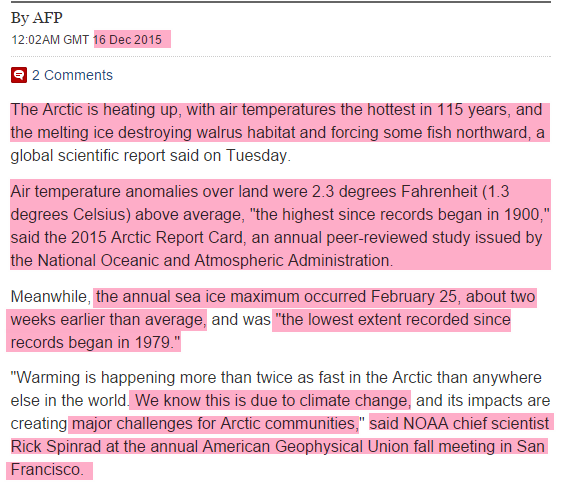
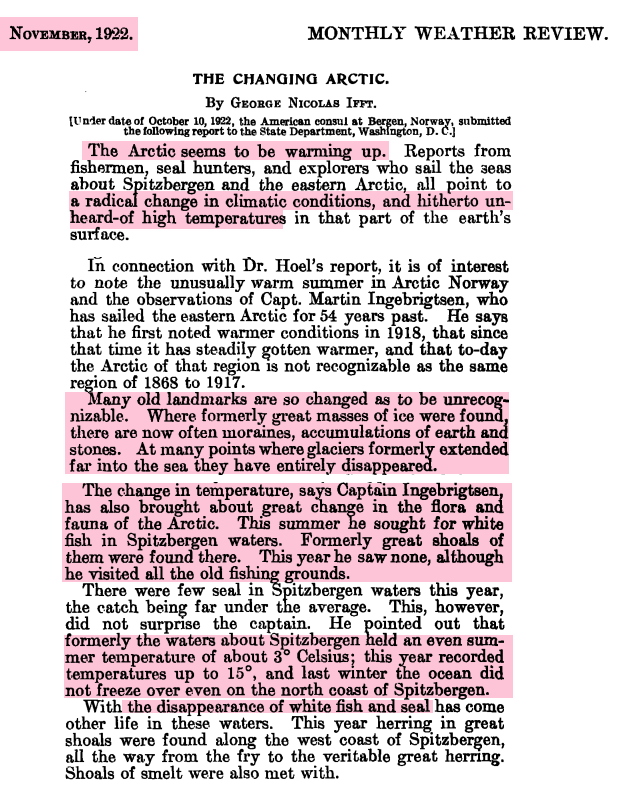


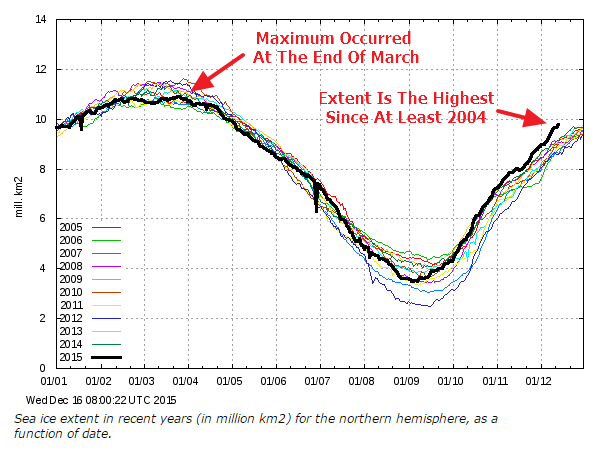
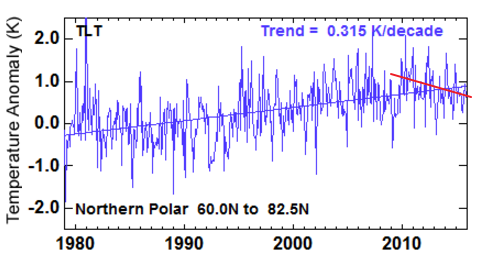

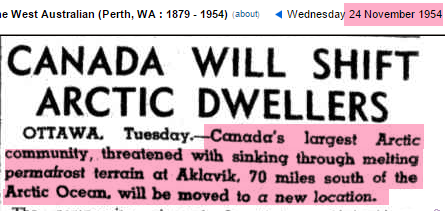
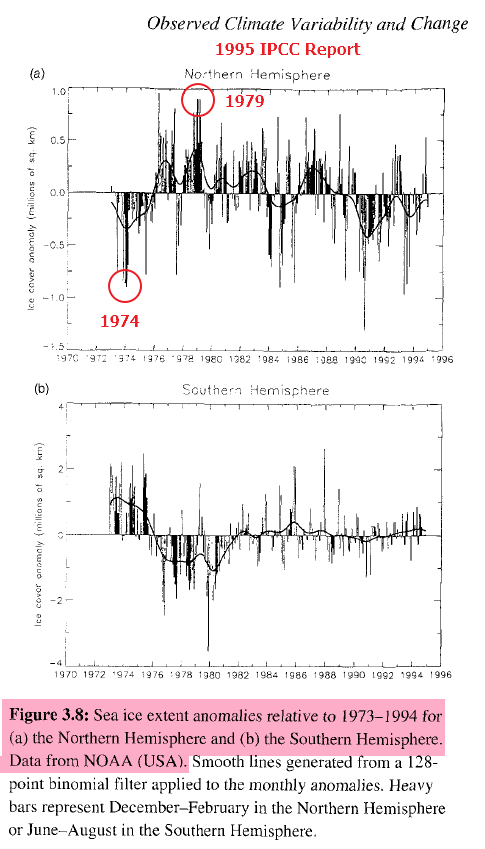
No comments:
Post a Comment